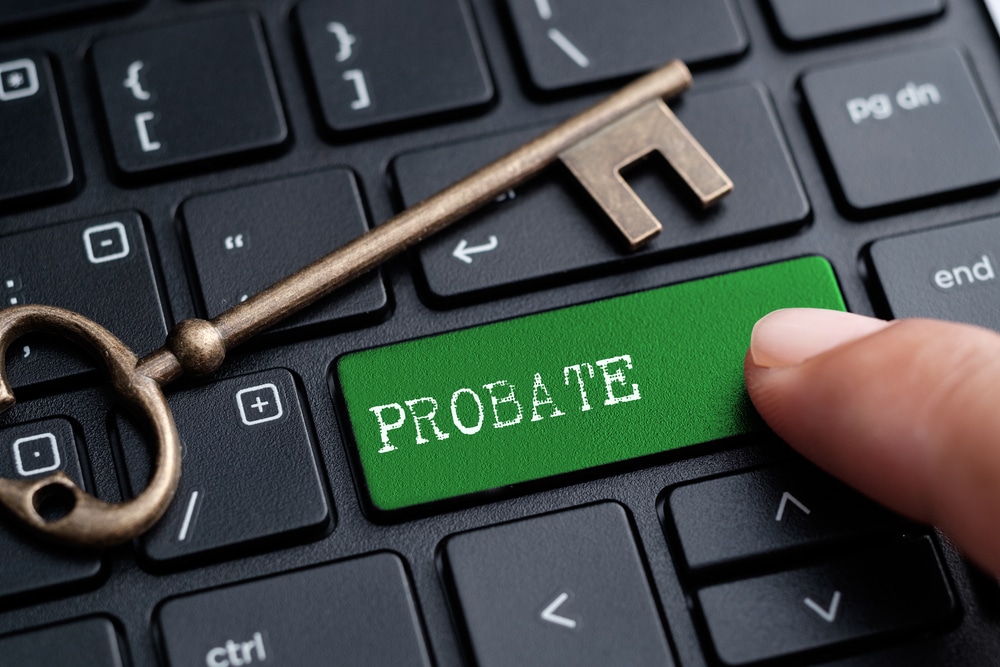If you’re thinking of planning your estate, you’re making a good decision. While it’s never pleasant to think about death, the unavoidable truth is that it happens to all of us at some point, but we don’t know when. What we do know is that if we have assets, we want to leave those to our loved ones. Failing to plan your estate properly risks that your property won’t be distributed the way that you want. Instead, the California legal system takes over and distributes the estate according to the laws of intetacy. That is one aspect of what is called probate.
Generally speaking, it’s usually best to avoid this process for several different reasons. We’ll get into them below, but for now we’d like you to obtain a basic answer to the question, “What does probate mean?” to help you decide how you should proceed with your own assets. Afterward, you should seek the help of a probate attorney at Kam Law Firm so you can plan your estate and rest assured that your wishes will be carried out properly.
What Does Probate Mean? The Definition in California
A good place to start would be to provide a plain language definition of probate, as it’s a term that’s used in more than one way. According to the state court system of California:
What Is “Probate”?
Probate means that there is a court case that deals with:
- Deciding if a will exists and is valid;
- Figuring out who are the decedent’s heirs or beneficiaries;
- Figuring out how much the decedent’s property is worth;
- Taking care of the decedent’s financial responsibilities; and
- Transferring the decedent’s property to the heirs or beneficiaries.
As is the case with most legal situations, there are a lot of terms and definitions strewn about within the probate context that may not be familiar to people. A few examples include:
- Executor – If there is a will, this is the person responsible for collecting assets, paying debts and distributing the remainder of the estate to the beneficiaries.
- Personal representative – A personal representative is another name for the executor but covers additional scenarios such as when there is no will for the estate.
- Beneficiaries – Beneficiaries are the people who receive assets from the estate.
- Decedent – The decedent is the person who has died.
As mentioned above, how a probate case proceeds depends largely on whether or not there was a valid will associated with the estate. Either way, the probate court oversees this process, but there are differences between these two scenarios.
If There Is a Valid Will
If there is a valid will in California and the matter goes through the probate process, the procedure is relatively straightforward compared to when there is no valid will. That’s because the parties have been properly named, including the executor and the beneficiaries, and the intent of the will is clear. Generally speaking, the process plays out as follows:
- The executor files the will, along with a Petition for Probate , with the court in the county in which the decedent passed away.
- Beneficiaries in the will are notified, as are other close family members.
- Creditors are also notified of the probate petition.
- If the court sees the will as valid, it grants authority to the executor to administer the estate.
- The executor files for a federal tax identification number for the estate, opens a bank account and gathers the assets.
- All relevant debts are also gathered and compiled in writing.
- A full list of assets and liabilities is filed with the probate court.
- The executor provides for safekeeping of the assets while the estate is administered.
- After all liabilities have been paid, the executor petitions the court to close the estate.
- If the court grants the petition, the assets can be distributed according to the tenets of the will.
This is a process, but one that’s largely governed by existing statutes and one that the court will oversee to a great extent. However, barring anything unusual, the desires of the decedent are usually followed.
If There Is Not a Valid Will
The situation is more complicated if a person dies without a valid will. In legal parlance, this means that the decedent has died “intestate,” and more steps with the probate court’s involvement become necessary. That’s because California law sets out the procedures by way of intestate succession laws. These laws basically dictate what needs to happen to the estate and, perhaps most importantly, who inherits what.
Specifically, intestate cases involve the following:
- The court names a personal representative to administer the estate.
- The personal representative must gather all information regarding assets and liabilities.
- The personal representative must organize the names of all potential beneficiaries and creditors.
- He or she must notify all potentially interested parties that the matter is active in the probate court.
- The personal representative moves through the process from here much in the way a case with a will proceeds.
- However, after the debts of the estate are paid, the assets are distributed in accordance with the California laws of intestate succession.
These intestate succession laws lay out different scenarios based on whether the decedent was married, had any children and had any assets subject to the court’s jurisdiction. You can find a full breakdown of how these laws specify the distribution of assets here.
Why You Should Try to Avoid Probate
Generally speaking, if it’s possible to avoid probate court, that’s the step one should take. That’s because for many people, the answer to the question, “What does probate mean?” is the following:
- A Lot of Time – According to the Superior Court of Santa Clara County, a personal representative should complete the probate process within one year or provide an explanation to the court as to why they cannot. However, if a federal estate tax is filed, it can take up to 18 months. Some probate cases can take longer if the personal representative does not perform his or her duties properly or a will is contested. Realistically, probate takes 1-2 years in a best case scenario.
- Heavy Expenses – In addition to the extra time involved, California law lays out the fees that must be paid to the attorney and executor for overseeing the process. These fees are as follows, as detailed by the California statutes:
(1) Four percent on the first one hundred thousand dollars ($100,000).
(2) Three percent on the next one hundred thousand dollars ($100,000).
(3) Two percent on the next eight hundred thousand dollars ($800,000).
(4) One percent on the next nine million dollars ($9,000,000).
(5) One-half of 1 percent on the next fifteen million dollars ($15,000,000).
(6) For all amounts above twenty-five million dollars ($25,000,000), a reasonable amount to be determined by the court.
Additionally, probate estates are valued based only upon the assets and not the liabilities. As such, if a house is involved in a probate case that’s worth $1 million, but there is a mortgage on the house for $250,000, the entire $1 million in value will be used to arrive at the relevant fees. It should also be noted that these fees are paid both to the executor and the probate attorney, so in essence an estate worth $100,000 would face $8,000 in potential fees.
How Can I Avoid Probate?
Fortunately, there are many opportunities for someone to avoid probate either mostly or altogether but doing so will require a specific and thorough estate plan. Generally speaking, real property held in joint tenancy with the right of survivorship, can avoid probate. Assets in a proper living trust can also avoid this process. That said, every estate is different, which means that what probate could mean in every situation is different.
If you find yourself with assets that are high in value and you do not have an estate plan, you owe it to yourself and to your family and loved ones to plan your estate properly for several reasons. Failing to do so could lead to months of delays if not more, tens of thousands of dollars in fees if not more, and confusion, stress and even hard feelings among your legal heirs or would-be beneficiaries.
Instead, you can avoid all of this by getting ahead of the situation and planning your estate. Kam Law Firm has helped many clients do just that by spending the time necessary to plan for every contingency and by overseeing the estate planning process closely until everything is settled. Give yourself and your loved ones the peace of mind all of you deserve. Contact the Kam Law Firm today to schedule a complimentary initial consultation.




